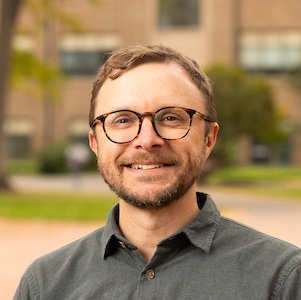Page 1 • (383 results in 0.041 seconds)
-
Review Meetings are neither formal court trials nor formal administrative hearings. Rather, they are structured educational discussions that focus on the student’s behavior in association with the
The Office of Student Rights and Responsibilities works to create educational processes to support the mission of student development. There are several different processes the SRR office coordinates. These processes are intended to provide that all students (whether making a complaint or responding to it) are treated in a manner which is fundamentally fair in accordance with the procedures developed by the University. Rights For StudentsBoth the complaining student (“Complainant”) and
-
The Office of Student Rights and Responsibilities coordinates conversations that assist students in advocating for themselves, help students understand the impact of their actions, and work to impact
Student Rights and Responsibilities oversees the student conduct process; there are other processes and types of meetings that the SRR Office coordinates as a way to support students in their development. The different types of processes are described below:Educational ConversationsThe Office of Student Rights and Responsibilities coordinates conversations that assist students in advocating for themselves, help students understand the impact of their actions, and work to impact their
-
Music Library Processes and Procedures (link) view page
-
The Office of Student Rights and Responsibilities consists of: the Dean of Students, the Assistant Dean of Students, the University Title IX Coordinator, Associate Directors for Campus Life, and Community Directors as Review Officers. The Dean of Students has delegated the administrative responsibility for student conduct processes to the Assistant Dean of Students, who is responsible for the effective day-to-day management and operation of the processes. The Assistant Dean of Students and
-
Access a wide range of internal data that supports the operational and strategic decision-making processes at PLU.
Internal University DataAccess a wide range of internal data that supports the operational and strategic decision-making processes at PLU. This section provides detailed reports on student and employee data, along with insights from various surveys conducted within the university. Explore the tabs below to delve into specific areas of interest.Student Data Explore detailed registration data and trends for both spring and fall semesters. These reports include information on continuing student
-
Students will demonstrate an understanding of the following key biological concepts. Diversity of life evolved from a common ancestor over time by processes of mutation, selection, and genetic
Biology Department Learning Outcomes Students will demonstrate an understanding of the following key biological concepts. Diversity of life evolved from a common ancestor over time by processes of mutation, selection, and genetic change. Structure and function are related at all levels of organization. The growth and behavior of organisms are regulated through the expression of genetic information in context. Biological systems are governed by the laws of thermodynamics and chemical
-
a. Purpose: The University’s Purchasing Card (P-Card) program is a fast, flexible purchasing tool, which offers an alternative to regular university purchasing processes and provides an efficient
1. Program Overviewa. Purpose: The University’s Purchasing Card (P-Card) program is a fast, flexible purchasing tool, which offers an alternative to regular university purchasing processes and provides an efficient and effective method to purchase supplies, travel-related expenses, conference registrations, etc. b. Benefits: Departments save time and effort by tracking their spending through the Bank of America online system, Works. The P-Card program is more cost effective than issuing a paper
-
Fully-funded Ph.D. positions are available in the Ferdowsi Research Laboratory within the Department of Civil and Environmental Engineering at the University of Houston. Positions are available with start date as early as Spring 2022 and Fall 2022. Some of our active research areas are experimental…
Ph.D. positions for research Across the disciplinary lines of soft matter physics, granular physics, and earth's near-surface processes Posted by: nicolacs / October 11, 2021 October 11, 2021 Fully-funded Ph.D. positions are available in the Ferdowsi Research Laboratory within the Department of Civil and Environmental Engineering at the University of Houston. Positions are available with start date as early as Spring 2022 and Fall 2022. Some of our active research areas are experimental and
-
We instill in all our students an appreciation for the evolution of biological diversity, a sense of amazement and curiosity about life and life processes, and an understanding of the scientific
Mission StatementWe instill in all our students an appreciation for the evolution of biological diversity, a sense of amazement and curiosity about life and life processes, and an understanding of the scientific method used to satisfy that curiosity. We create an inclusive learning environment that encourages student-faculty collaboration and allows both students and faculty to achieve their full potential as scientists, independent thinkers, and globally responsible citizens. Professor Jacob
-

Chair of Earth Science | Earth Science | lechlear@plu.edu | 253-535-7744 | My research centers on mountain building processes and regional climate change and the associated influences of each on atmospheric dynamics.
) Professional Memberships/Organizations American Geophysical Union , (2008 - Present) Geological Society of America , (2006 - Present) Biography My research centers on mountain building processes and regional climate change and the associated influences of each on atmospheric dynamics. Specifically, I use stable isotope geochemistry, clumped isotope thermometry, detrital provenance techniques, and climate modeling to study the tectonic, topographic and climatic evolution of orogenic systems as recorded in
Office HoursMon: 2:00 pm - 3:00 pmWed: 10:30 am - 12:00 pmFri: 10:30 am - 12:00 pmMon - Fri: -
Do you have any feedback for us? If so, feel free to use our Feedback Form.


